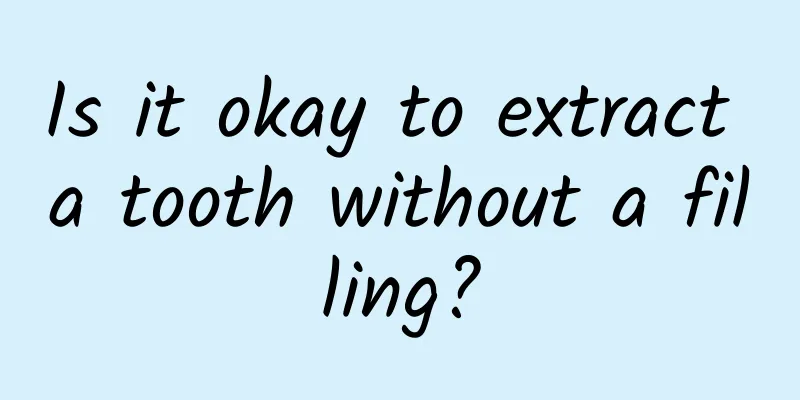What happens if missing teeth are not replaced?

|
Many people, after losing a tooth, mistakenly believe that since there are so many teeth, it doesn't matter if one is lost. Some even believe that teeth are bound to fall out sooner or later, so it's not too late to fill them after all the teeth fall out. In fact, these are all wrong concepts. If missing teeth are not filled in time, it will cause harm to the body and affect a person's appearance. Therefore, missing teeth must be filled in time. The dangers of not filling missing teeth 1. It can cause temporomandibular joint disorder: When a large number of teeth are missing, the remaining teeth may tilt, shift, or extend to the opposite side, disrupting the bite and hindering the mandible from extending forward or moving left and right. Sometimes, due to missing teeth on one side, people chew with the other side, forming a unilateral chewing habit and unbalanced muscle tension. If this continues for a long time, the muscles will become fatigued, the condyle will move posteriorly, the articular disc will swell, the joint area will feel uncomfortable, and even symptoms such as pain, inability to open the mouth, and joint clicking will occur. This is clinically called temporomandibular joint disorder. 2. Affecting pronunciation function: Language is formed by the mouth, and teeth are auxiliary organs for pronunciation. If people want to speak and sing accurately, they cannot do without teeth. The teeth work together with the tongue, lips, and cheek muscles to control the route and flow of air through the oral cavity, thereby producing different sounds, forming different sentences, and expressing various wishes and thoughts. When individual back teeth are missing, it does not have much impact on pronunciation. However, when more teeth are missing, especially the front teeth or all teeth are missing, it can cause pronunciation disorders to varying degrees, making speaking difficult and unclear. 3. Adverse effects on remaining teeth: There is a limit to the chewing force that teeth can withstand. When individual teeth are missing, the chewing force is concentrated on the remaining teeth. Since the chewing force exceeds the tolerance limit of the remaining teeth, the remaining teeth are traumatized and periodontal diseases such as periodontal membrane edema, gingival atrophy, alveolar bone absorption, and loose teeth occur. If dentures are not installed for a long time, the adjacent real teeth may tilt and shift into the gap. The teeth corresponding to the gap will gradually lengthen due to the lack of opposing force, causing the occlusion and tooth arrangement to become disordered, causing the remaining teeth to lose their normal adjacent relationship, resulting in food impaction, which is also one of the causes of periodontal disease. 4. Decreased or lost chewing function: Under normal circumstances, after food enters the mouth, it is gradually chewed by the teeth and continuously mixed with saliva to form a food bolus, which then enters the gastrointestinal tract through the esophagus for digestion and absorption. When food is chewed, it also stimulates the oral cavity and causes nerve reflexes. On the one hand, it promotes the secretion of gastrointestinal fluid and aids digestion; on the other hand, it also promotes gastrointestinal motility and accelerates the absorption of nutrients. When individual teeth are missing or a row of teeth is missing, chewing efficiency decreases or is lost, saliva secretion decreases, gastrointestinal motility slows down, and unchewed food enters the gastrointestinal tract. The burden on the gastrointestinal system increases, leading to gastrointestinal dysfunction and affecting the body's absorption of nutrients. In severe cases, the body may develop digestive system diseases. 5. Affect the beauty of facial shape: Facial shape plays an important role in human beauty, and teeth and eyes are the most important organs that affect facial shape. After all teeth are lost, the upper and lower jaws lose support from the teeth, and the alveolar bone or the entire jaw will gradually degenerate and absorb due to lack of normal chewing force stimulation, causing the lower face to shorten, the cheeks and surrounding muscles to relax, the lips and cheeks to sink, the corners of the mouth to droop, the face to deform and wrinkles to increase, and the person to look older than his peers. |
<<: What happens if you eat ice cream during your period?
>>: What happens if you sweat too much?
Recommend
What to do if you haven't pooped for several days
If you haven't defecated for several days, yo...
It turns out that these are the 7 points to pay attention to when extracting teeth
Tooth extraction is something that many adults ha...
Symptoms of cerebral palsy in infants
Cerebral palsy is a very common disease. There ar...
Causes and treatments of bumps at the base of the tongue
The appearance of bumps at the root of the tongue...
Why do I have lower abdominal pain after having sex for the first time?
Pain during sexual intercourse is a relatively co...
What does itching of the stomach mean?
Our skin is very prone to itching. Most people at...
What should I do if my herpes simplex virus antibody is positive?
Under the slogan of eugenics, many friends will m...
How to get rid of face mites and acne
Mites are a relatively common parasite that often...
Carrots for gout
Carrot is a common vegetable in our lives. It is ...
What are the benefits of drinking hawthorn tea regularly?
Hawthorn tea, as the name suggests, is tea made f...
Sweating a lot during pregnancy
After pregnancy, a pregnant woman's body meta...
What is arm cold pain?
The importance of arms is self-evident. Because w...
Is pituitary tumor treatable?
The reason why people are afraid of getting tumor...
TCM treatment of gastric disease, these Chinese medicines should be known
Stomach problems are mainly caused by improper di...
Baby likes to lick clothes
In our lives, there are many babies who like to l...









